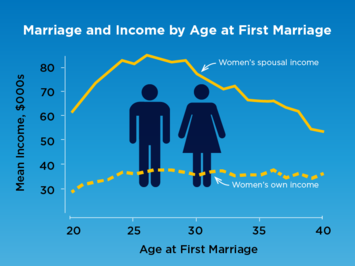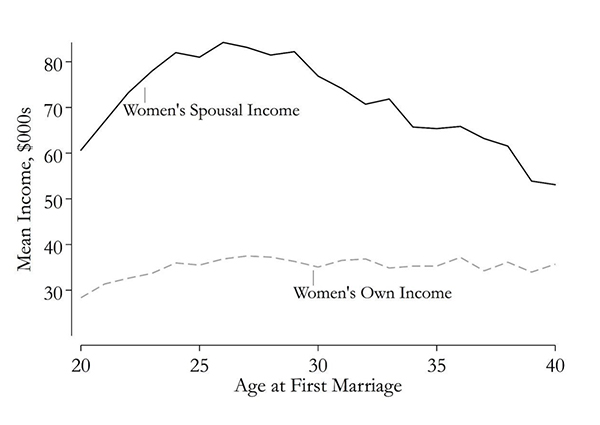
Welcome to my weekly digest. For new subscribers, this contains a roundup of my recent writings and podcasts, as well as links to the best articles from around the web this week. First, a study on what women and men want in the dating market.
Corinne Low, an economics professor at the Wharton School, put out a tweet thread highlighting findings from two of her studies that will be published soon in academic journals. She links to online versions of the full studies. She recruited real life daters to rate profiles in which fake income and age were randomly assigned. This allowed her to independently measure the impact of age and income on desirability.
She reached a number of conclusions:
- Women prefer men two years older than themselves.
- Men prefer younger women, period. They penalize a woman for being older independently of attractiveness.
- It takes $7000/yr in extra income for a woman to offset the penalty associated with being one year older. (This is consistent with other research I’ve seen showing that men value income much less than women, hence it takes a lot of female income to offset weaknesses in other areas).
- Male preference for younger women is heavily driven by a desire for children. It’s stronger for men who are childless and want to get married and have kids, as well as in men who are knowledgeable about women’s fertility decline with age. Men who already have kids don’t display this age preference. This means women’s fertility window has a major impact on their dating and marriage prospects.
Low posted this chart showing that after about age 27, the income of the men that women marry goes down. She views this as one impact of women being rates as less desirable as they age.

Not that this chart also shows again that women prefer to marry up in terms of income.
She even uses her findings to explain seemingly odd occurrences, such as that women with graduate degrees marry poorer men than women with merely a bachelors. In her view, the increased income or status associated with a graduate degree does not offset the attractiveness penalty from spending extra years getting that degree.
This data is very consistent with what I called the “attractiveness curve” back in newsletter #18.
With the move to online dating and more research being focused on this area, we now have a lot of hard evidence about what men and women want, and how they behave in the dating and marriage marketplaces. Note that this research is from a female economist at a top university, not some random online influencer.
Regardless of how we would like things to be, we have to anchor ourselves and make decisions for our lives in light of how things actually are. And pastors and other authority figures have to speak out of this reality, not repeat old bromides from the 70s and 80s that we now know just aren’t true.
Read the rest of this piece on Aaron M. Renn on Substack.
Aaron M. Renn is an opinion-leading urban analyst, consultant, speaker and writer on a mission to help America's cities and people thrive and find real success in the 21st century. He focuses on urban, economic development and infrastructure policy in the greater American Midwest. He also regularly contributes to and is cited by national and global media outlets, and his work has appeared in many publications, including the The Guardian, The New York Times and The Washington Post.












